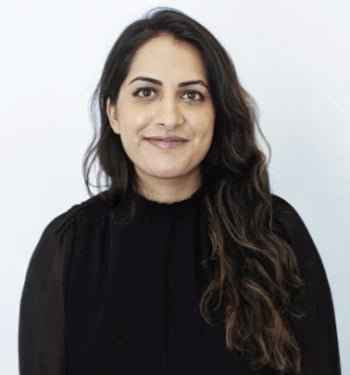The excitement of buying your first car can be exhilarating. However, securing your first car insurance policy can be intimidating. Understanding how car insurance for first-time buyers works can help you get the coverage you need at the best possible price.
“Buying insurance is an important financial decision,” says Alaina Hixson, a Nashville, Tennessee-based director of sales and operations at The Churchill Agency. “So, be sure you feel informed and comfortable with your purchase.”
If you’re buying car insurance for the first time, keep reading to learn more.
- Car insurance is expensive for new drivers.
- It is important to balance the cost of an insurance policy with getting the coverage you need.
- Looking for discounts and raising your deductible are two ways to lower your car insurance costs.
Why is car insurance necessary?
Car insurance is necessary for many reasons. Most importantly, it is against the law to drive without car insurance in most states.
You must carry at least a minimum amount of liability coverage to protect you in case you are responsible for injuring another person or damaging their property.
“Researching your state’s insurance department website will let you know the minimum limits required for where you live,” Hixson says.
Many people also purchase collision and comprehensive coverage to protect their own vehicles since liability coverage only covers damage you cause to others. In fact, if you have a car loan, it’s likely that your lender will require you to purchase this coverage, which we go into detail about below.
The key is to purchase enough insurance so that you meet legal requirements and have enough coverage to protect you financially.
Different types of car insurance
Within your car insurance policy, there are several types of coverage. These individual components offer different types of protection. The key aspects of car insurance are:
- Liability coverage: Bodily injury liability protects you when you are responsible for injuring or even killing another person in an accident. Property damage liability protects you when you are responsible for damaging someone else’s property, including their vehicle.
- Collision coverage: This type of insurance reimburses you for damages to your own car that result from a collision with another car or object.
- Comprehensive coverage: This type of insurance covers most other types of damage that occur to your car that are not the result of a collision. For example, if a tree crashes down on your car or hail damages it, comprehensive coverage would cover the bill.
- Uninsured and underinsured motorist coverage: Uninsured motorist insurance can protect you when you get into an accident with a driver who does not have insurance. Underinsured motorist insurance can help pay your bills when the other driver has insurance, but not enough to adequately cover your losses.
- Medical payments coverage and personal injury protection: These types of coverage reimburse you for medical care related to injuries to you or a passenger.
How to get car insurance for first-time buyers
By definition, purchasing car insurance for the first time is a new experience. Policies are available directly from an insurer, through an agent or via a website that can get you several quotes from various insurers instantaneously.
When you shop for insurance, the following tips can help you avoid some common mistakes:
- Know how much coverage you need. It’s important to buy at least the minimum amount of liability coverage mandated by your state. Beyond the minimum, you want to buy enough coverage to ensure you are adequately covered, but not so much that you spend more than you need to. Knowing your net worth can help you determine how much coverage you need to protect yourself financially.
- Decide whether you need collision and comprehensive coverage. These coverages protect your own car. If you have a car loan, you likely will be required to purchase this type of coverage. If you are not compelled to carry collision and comprehensive coverage, you can skip it, but you will then have to pay for any repairs out of pocket.
- Choose a deductible amount. Raising your deductible — such as from $500 to $1,000 — usually will lower your premium costs. This can save you money over the life of the policy. However, remember that if you make a claim, you must pay any deductible before your insurance coverage kicks in.
- Look for discounts. Most auto insurers offer various types of discounts that can lower your car insurance costs. For example, if you bundle your car insurance with your homeowners or renters insurance — meaning you purchase both policies with the same insurer — you might get a price break. Many other types of discounts are available, so ask your insurer about them.
What to know as a first-time insurance buyer
If you are a first-time buyer, purchasing car insurance can be a bit more challenging. Because you do not have a long driving history, rates are likely to be higher than they would be for a more experienced driver who has a clean record.
“Shopping for car insurance for the first time can be daunting,” Hixson says. “Not all companies will write a policy for someone who has never had auto coverage before.”
First-time buyers might also make the mistake of simply purchasing the minimum amount of insurance required by their state, but “minimum limits do not always protect everything that is important to you and your family,” Hixson says.
If you are a little nervous about purchasing car insurance for the first time, you might benefit from a little expert help.
“Find an agent who will comprehensively educate you about the product you are purchasing so you are equipped to make the best decision,” she says.
Learn more about the 10 most important factors that affect car insurance rates
What information do you need as a first-time buyer?
The more information you provide to an insurance company, the more accurate your quote will be. Be honest about your driving record, as tickets, accidents and claims will impact your rate.
“To get the most accurate rates, be prepared to provide full names, birth dates and driver’s license numbers for all household members,” Hixson says.
It can also help to provide your vehicle identification number. This allows the insurer to know the precise specifications of your vehicle. For example, two-door vehicles are considered sportier. Coupled with the number of cylinders your car has, it can “make a big difference in determining your premium,” Hixson says.
How can first-time buyers save on car insurance?
It is likely that car insurance will be more expensive the first time you purchase it. Until you establish that you are a good driver who can be trusted to drive safely, insurance companies will likely require you to pay higher premiums to compensate for the risk of insuring a new driver.
However, there are several ways to reduce the cost of car insurance. They include:
- Raising your deductible. When you raise your deductible, premium costs should fall. For example, the Insurance Information Institute notes that raising your deductible from $200 to $500 can reduce collision and comprehensive costs.
- Bundling your coverage. Insurers generally offer discounts to policyholders who bundle their coverage, such as by purchasing auto and renters insurance from the same company.
- Getting good grades. If you are a young driver, many insurers will offer you a discount on your premium if you maintain good grades.
“Providing details such as homeownership, military experience and education can all lead to discounts on your policy,” Hixson says. “So, be sure to share this info and ask your agent about all available opportunities to save.”
Shopping around for better car insurance rates
Gathering quotes from multiple companies is one of the best ways to save on car insurance. Each company has its own criteria for setting rates, and it is likely that one company will be a better match for driving profile than others.
The best ways to gather quotes include:
- Reaching out to insurance companies directly
- Contacting an insurance agent who can get quotes from multiple companies
- Using a website that can get you quotes from several different companies at once
How to get discounts as a first-time car insurance buyer
The best way to get insurance discounts is to ask prospective insurers what types of price breaks they offer, and how you can qualify for them.
In some cases, insurance companies will also include details about discounts on the company website. If you work with an insurance agent, ensure the agent is looking out for your best interests.
“Be sure they are maximizing your available discounts and ask any questions on your mind,” she says. “A good agent will respect your due diligence.”
Check out our guide: How to get discounts on car insurance
Final thoughts on car insurance for first-time buyers
Getting car insurance when you are a first-time car buyer can seem a bit intimidating. But in reality, the process is usually pretty straightforward.
Once your policy comes up for renewal, be sure to gather quotes again to see if you can get a better rate. As you gather more driving experience, your rates should decrease as long as your driving record is clean.
Check out our detailed guide on how to get new car insurance
Resources & Methodology
Sources
Insurance Information Institute. “Auto insurance basics — understanding your coverage.” Accessed September 2023.
Insurance Information Institute. “Understanding your insurance deductibles.” Accessed September 2023.





